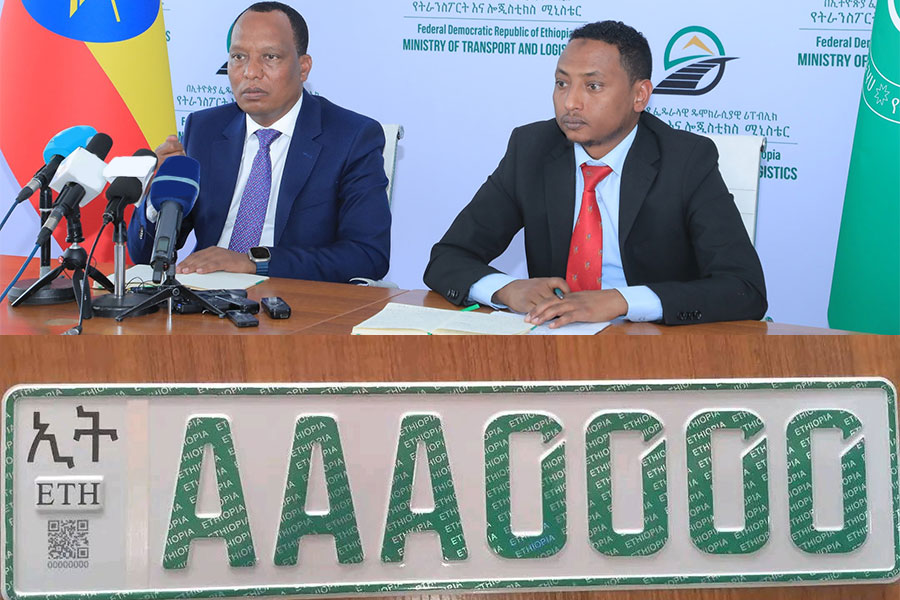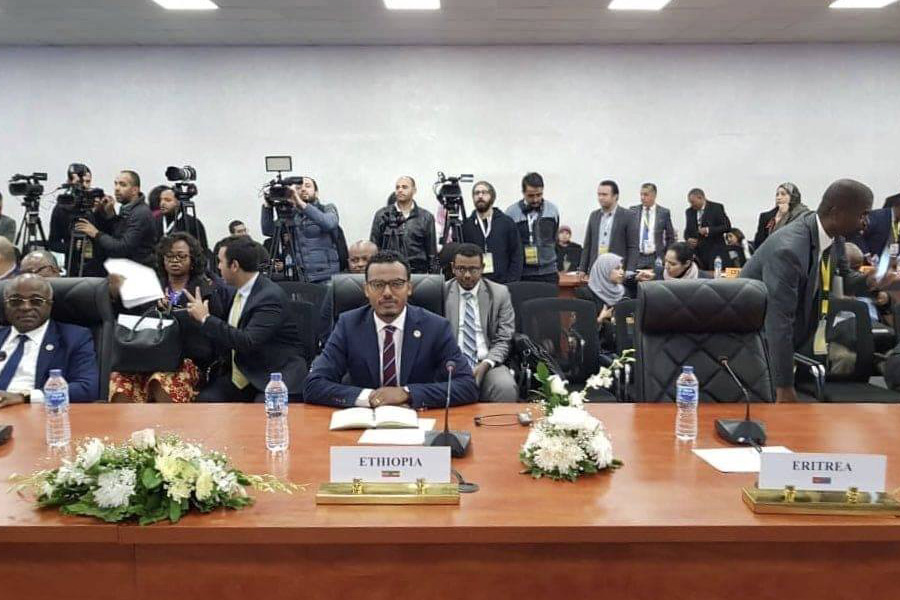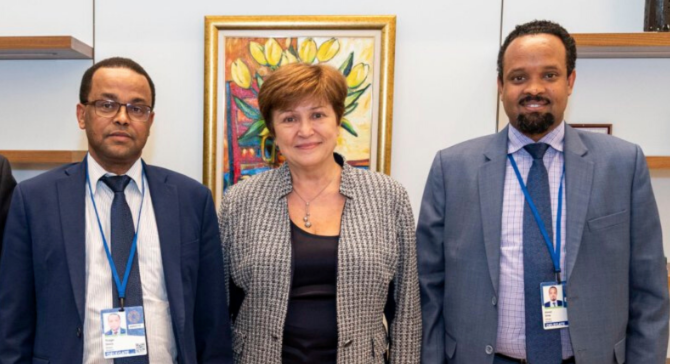
Mar 20 , 2021
By Eden Sahle
Last week during a random visit, I met children and teenagers at the SOS Children's Village in Addis Abeba's Sar Betarea by South Africa Street. It is home to hundreds of vulnerable children with tragic backgrounds, often having lost a parent due to poverty or drug abuse.
In principle, the government has to take care of every child left without a guardian. In reality, developing countries such as Ethiopia cannot afford such social welfare programmes and rely significantly on donor help. But even this is not enough. Clear evidence of this is the sad reality we witness daily on the streets of Addis Abeba. For vulnerable young people, those that have found their way to "villages" operated by SOS, an Austrian non-profit present in about 135 countries that has reached at least 12,000 children all over Ethiopia, seem to be the lucky ones.
They are incredibly mature for their age. They speak proudly of their goals in life and seem to have a clear idea of where they are heading. They are friendly and respectful, making the village a warm and familial place. Although they did not grow up with their biological parents, their diverse background has bonded them stronger in love.
The guardians that look after them – staff and parental figures – are the role models the children and youth look up to. They are affectionate and generous as well.
As grownups in this country become less and less hospitable in what they believe in and strive for, hating and unwilling to tolerate each other, these children are remarkably socially cohesive despite coming from diverse backgrounds. These are young minds that show us the humanity in all of us and how we can choose to rise above our insecurities to speak for injustice.
Here, credit is due to the adults who look after them. Many of the guardians also come from different backgrounds but see what is more critical: to be humane to other fellow people who need help and are vulnerable.
Such attitudes are becoming less and less prevalent with adults in Ethiopia as groups and individuals have come to form their views of others strictly across politics. What counts is not the humanity of others anymore; if they do not meet our political criteria, they are to be feared and kept at a distance.
The children and youth at the SOS village allow us to see what we are starving for as a country. It is not just their view of shared destiny and thus the need to coexist, but their circumstance also represents what fails to be society's priority. What drives children to vulnerability is poverty and conflict. But the resources that go into raising the many children that have been affected by this are not sufficient, as street children witness in cities.
Worse still, conflict has been hard to stop, leaving more children without guardians, and the political chaos itself could translate into a steep economic depression that increases the number of vulnerable. How this is not the overriding priority of this country is easily obvious looking at our political leaders, who have grown drunk with nationalisms.
These like-minded minors and adults have something to teach us: if we choose to, we can redirect positive energy to renew ourselves and our communities for the better. Civic engagement gives us a pro-social, caring outlook, more attuned to sympathising with the most vulnerable challenges instead of chasing grandiose political objectives.
These children and youth and those who raise them are unsung public heroes that have the greatest chance of allowing for a better society to come in Ethiopia.
PUBLISHED ON
Mar 20,2021 [ VOL
21 , NO
1090]

Radar | Jun 08,2019

My Opinion | Feb 06,2021

Fortune News | Oct 23,2018

Radar | Aug 05,2023

Fortune News | Jul 15,2023

Advertorials | Mar 13,2019

Viewpoints | Aug 29,2020

Radar | Sep 21,2019

Radar | Jan 19,2019

Fortune News | Dec 14,2019

Photo Gallery | 171515 Views | May 06,2019

Photo Gallery | 161756 Views | Apr 26,2019

Photo Gallery | 151485 Views | Oct 06,2021

My Opinion | 136302 Views | Aug 14,2021





Dec 22 , 2024 . By TIZITA SHEWAFERAW
Charged with transforming colossal state-owned enterprises into modern and competitiv...

Aug 18 , 2024 . By AKSAH ITALO
Although predictable Yonas Zerihun's job in the ride-hailing service is not immune to...

Jul 28 , 2024 . By TIZITA SHEWAFERAW
Unhabitual, perhaps too many, Samuel Gebreyohannes, 38, used to occasionally enjoy a couple of beers at breakfast. However, he recently swit...

Jul 13 , 2024 . By AKSAH ITALO
Investors who rely on tractors, trucks, and field vehicles for commuting, transporting commodities, and f...

Oct 4 , 2025
Eyob Tekalegn (PhD) had been in the Governor's chair for only weeks when, on Septembe...

Sep 27 , 2025
Four years into an experiment with “shock therapy” in education, the national moo...

Sep 20 , 2025
Getachew Reda's return to the national stage was always going to stir attention. Once...

Sep 13 , 2025
At its launch in Nairobi two years ago, the Africa Climate Summit was billed as the f...

Oct 5 , 2025 . By NAHOM AYELE
In Meqelle, a name long associated with industrial grit and regional pride is undergo...

Oct 5 , 2025 . By BEZAWIT HULUAGER
The federal government is set to roll out a new "motor vehicle circulation tax" in th...

Oct 5 , 2025 . By NAHOM AYELE
The Bank of Abyssinia is wrestling with the loss of a prime plot of land once leased...

Oct 5 , 2025 . By BEZAWIT HULUAGER
The Customs Commission has introduced new tariffs on a wide range of imported goods i...